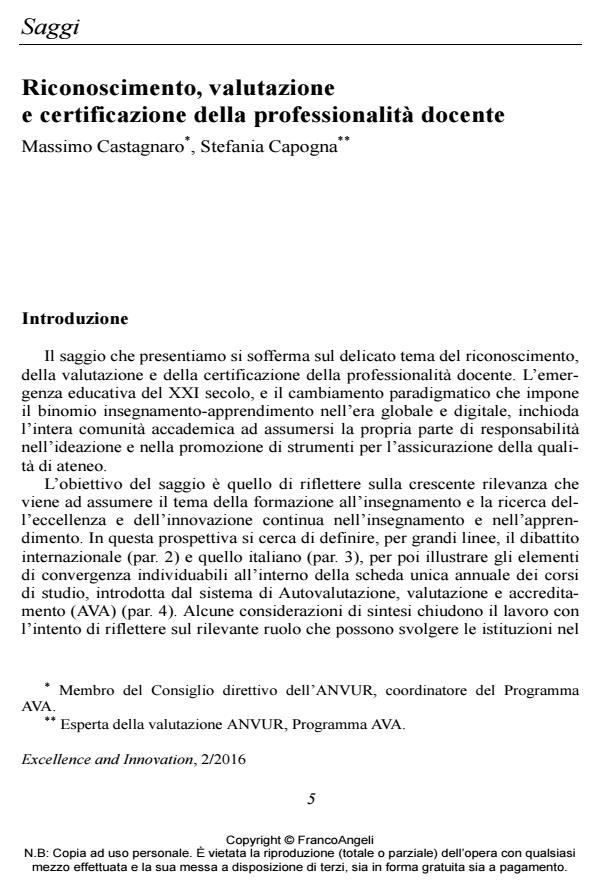Recognition, Evaluation and Certification for Teaching Profession
Journal title EXCELLENCE AND INNOVATION IN LEARNING AND TEACHING
Author/s Massimo Castagnaro, Stefania Capogna
Publishing Year 2016 Issue 2016/2
Language Italian Pages 12 P. 5-16 File size 148 KB
DOI 10.3280/EXI2016-002001
DOI is like a bar code for intellectual property: to have more infomation
click here
Below, you can see the article first page
If you want to buy this article in PDF format, you can do it, following the instructions to buy download credits

FrancoAngeli is member of Publishers International Linking Association, Inc (PILA), a not-for-profit association which run the CrossRef service enabling links to and from online scholarly content.
The essay focuses on the delicate question of recognition, evaluation and certification of teaching skills. The twenty-first century shows the crisis of the traditional educational paradigm. The global and digital world requires a different combination between teaching and learning, defying the entire academic community to assume its responsibility in the promotion of Quality Assurance University Policies. The idea that accompanies the reflection is how to promote a culture of evaluation as instrument of organizational and professional empowerment, based on management instruments, certainly perfectible, but useful to start virtuous circles of reflexivity and improvement as request by any learning organization.
Keywords: Quality Assurance; teaching; learning; evaluation; didactic; university
Massimo Castagnaro, Stefania Capogna, Riconoscimento, valutazione e certificazione della professionalità docente in "EXCELLENCE AND INNOVATION IN LEARNING AND TEACHING" 2/2016, pp 5-16, DOI: 10.3280/EXI2016-002001